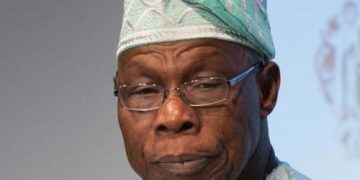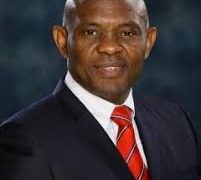My musical idol, Ayinla Omowura, late Yoruba Apala musician, while pillorying his truant first son, Akeem, also dwelled on the theme of Àjàntálá. He warned that an Ajantala child who lives a life of borderless splendour, misbehaviour and societal nuisance would soon lose all when “his mother goes fetching water and his father, to the farm,” a metaphor for an unscheduled forever-trip. Ayinla was soon to be killed after this Nostradamus prophecy
By Festus Adedayo
THROUGH its ancient mythology, Yoruba had a counterpoise of the western Frankenstein monster. It’s a negatively phenomenal child called Àjàntálá. In folklore and as a cultural signifier, the Àjàntálá was a misbegotten child, a product of his father’s disobedience to the un-science of, though life-shaping, ancient epistemology and practices. Àjàntálá’s hunter father had disobeyed widely held myth that when hunters’ wives were pregnant, they should cease hunting. The belief was that, if they shot a cantankerous game, it may, in anger, displace the foetus inside their wives and become a perilous child. This was the process that birthed Àjàntálá.
In the Amos Tutuola version of Àjàntálá’s story (Àjàntálá, the noxious child: 1986), the baby spent 23 years inside his mother’s womb. A few days before he was born, as his mother walked the bush path, the child began a conversation with her, even cavalierly suggesting its name at birth.
At his naming ceremony, the 8-day-old child disrupted the proceedings, gluttonously consuming every food in sight and causing huge pains to his parents and all his naming ceremony attendees. As he grew, Àjàntálá manifested malevolent streaks, whipping his parents at intervals and beating to stupor a Babalawo, who was engaged to provide spiritual succour to his raving-mad Satanic theatrics. When his mother, tired of his wiles and the social stigma he caused the family, decided to trickily dump him in the forest, Àjàntálá encountered and became a family of the Goat, Ram and Lion and the discord he caused among them was phenomenal.
Two misbegotten children in the bible, Hophni and Phinehas, also manifested streaks that resembled Àjàntálá’s. They were the two sons of the high priest at the sanctuary of Shiloh in Jerusalem called Eli. The Bible described these children as “good-for-nothing” priests because they were not only corrupt and immoral, they brought their revered father huge shame. They did this through their abuse of priestly positions. The two went round wherever there were sacrifices to Yahweh and demanded excessive portions of the sacrifices. They were also renowned for sexual perversion and misconduct which brought dishonour to their father’s priestly office. At the apogee of their irresponsibility, these two Àjàntálás not only, by so doing, ended their lives in a tragic fall but were the ones who brought Elli’s priestly line to its doom.
Perhaps drawing its muse from these three disreputable children, a 1980s Ifá Olókun Television drama series created a character called Omolokun. Omolokun’s notoriety rivaled Àjàntálá, as well as Hophni and Phineas’. A product of undue haste for childbirth by a barren couple, Omolokun’s parents were eventually handed a child by a deity. This child then acted in every way like Àjàntálá, demanding every impossible thing under the earth, including “Odidi eni”—a human being. His thirst for the imponderables eventually led to his and his parents’ deaths.
My musical idol, Ayinla Omowura, late Yoruba Apala musician, while pillorying his truant first son, Akeem, also dwelled on the theme of Àjàntálá. He warned that an Ajantala child who lives a life of borderless splendour, misbehaviour and societal nuisance would soon lose all when “his mother goes fetching water and his father, to the farm,” a metaphor for an unscheduled forever-trip. Ayinla was soon to be killed after this Nostradamus prophecy.
Son of the Nigerian president, Seyi Tinubu, must be a pain to his father and to responsible parenting. In Nigeria’s history, I am not aware of any president’s child who has threatened public peace, public decency and the public space as Seyi. His name has come out in every socially distasteful national issue. You will recollect that this same young man was one who, but for his father’s peremptory scold, would probably have been attending Executive Council meetings with ministers. Seyi has no fog about precis in behaviour, so much that he outperforms himself in irresponsible behaviour. He is reputed to have nominated ministers and behaves in socially anomalous manner that baffles. Perhaps, the children of Muhammadu Buhari, who went watching the Durbar in presidential aircraft and shooting photographs with our national craft; the son of Sani Abacha, who commuted in Nigeria’s presidential aircraft like one taking peremptory trips in a Molue, can outperform Seyi in national irresponsibility. He causes so much stir with his long convoys of glittering automobiles and is chaperoned to occasions by Nigerian security apparatuses.
The latest about him is the allegation by the NANS President that Seyi ordered him tortured, beaten and his nude pictures taken for his voyeuristic pleasure. Though Seyi has denounced this, why would the president’s son always be associated with such shameful actions? In the APC, the youth wing is literally comatose with Seyi being alleged to have taken over the works of its executive. If President Tinubu is not embarrassed by the activities of his son, parents all over the world are. Seyi acts like a product of irresponsible parenting and upbringing. The Yoruba say if one’s yam farm posts bountiful harvest, a wise man would cover the heaps from prying eyes. Apart from the raw power to browbeat and be kowtowed to, illicit funds and majesty associated with being the president’s son, what does Seyi have up his medulla oblonganta? From the little I hear from him, it is absolutely empty. As Seyi paints Nigeria in crimson as this, its reverberating effects bounce back on his father. Don’t Yoruba say it is the overripe orange that invites throwing of stones at its mother tree?
By the way, on Tuesday, May 6, Ayinla Omowura would be marking the 45th anniversary of his murder in a barroom feud. Famous podcaster and broadcaster, Edmund Obilo, held me to an almost 3-hour interview as I discussed the life and times of this bohemian musician. Please, watch out for the podcast.
•Cover Picture: NANS President
•Opinions, positions or thoughts expressed here are personal and strictly of the writer/author and do not represent the views of The Daily Crucible.






































